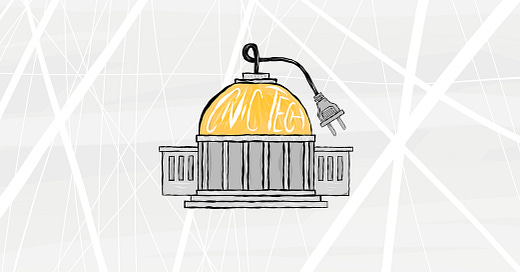If any of my subscribers are still here, hello! I know it’s been a long time. Too long. But I recently found myself reflecting on my experience as a product manager within the Department of Veterans Affairs, Office of the CTO. I started this position back in August of 2023, completely new to government and fresh off a career change from finance. Here are five key lessons I’ve found helpful to keep in mind - and they are by no means specific to government!
1. Stay humble, stay curious. Always.
Whatever you’re about to take on is (probably) not a brand-new initiative but rather the latest chapter in a long arc of change and iteration. Many individuals likely had a hand in shaping this project, each doing their best with the resources and knowledge available to them.
Instead of approaching a problem with “How did this system end up like this? What a disaster!”—recognize that it reflects the hard work of earlier teams. These are individuals with whom you’ll likely need to collaborate to make meaningful progress.
Accept that you don’t have all the answers. Ask questions to understand the decisions that led to the current state. Build a mental model of how things evolved. This sets you up for success and leads naturally to #2…
2. Build relationships.
Relationships are the foundation of any career, and this is especially true in government, where even small wins can feel monumental.
You might discover, for example, that progress requires access to data owned by a team or sub-agency you’ve never encountered before—yet this team is now central to your success. Build bridges. Treat these colleagues as peers, not just stakeholders. Effective collaboration starts with mutual respect and trust.
3. Find what’s poorly understood by your team, and dive in.
Some of the most significant opportunities are hidden in areas no one has had the time or bandwidth to explore.
Just because an issue has been sitting idle in the backlog doesn’t mean it’s unimportant. Often, and especially in government, the reason it’s been untouched is as simple as: “No one has had the time.” Be the one who takes the time.
4. Focus on the problem, not the tools.
Build a clear understanding of the problem, agnostic of the technology available.
First, this helps your team deeply understand the root cause of the issue you’re tackling. Even if immediate solutions aren’t feasible for various reasons, knowing the full scope allows you to map the gap between where you are and where you need to go.
Second, it keeps your team from falling into the trap of trying to fit specific technology to the problem. The hammer does not go looking for the nail, folks.
5. Embrace ambiguity, and just start.
At a recent offsite, a colleague shared a lightning talk on the importance of simply starting. When tackling a problem, you’ll never have all the answers or complete context. There’s always one more person to talk to or another artifact to dig up. I would know, as a perpetual over-analyzer.
But complete knowledge is a mirage, as my colleague put it. More often than not, you know enough to take the first step and work on the slice of the problem you do understand. Focus on the next 30 days.
Yes, you’ll make mistakes, and that’s okay. Be willing to be wrong. The goal isn’t perfection; it’s shipping something that’s incrementally better than what came before.
That’s all for now, keeping it short. Perhaps I’ll dive into specific anecdotes from my work in separate posts.
Being a government technologist is fun. It’s rarely easy, and sometimes you feel like you aren’t making any progress. But every so often, you get to look back on the previous year as my team did last week, and realize we’re doing the damn thing — improving the veteran experience through better software.
Back to work!
*Disclaimer: views represented in this newsletter are my own and not those of the Department of Veterans Affairs or any other U.S. government entity. It is written in my personal capacity.



